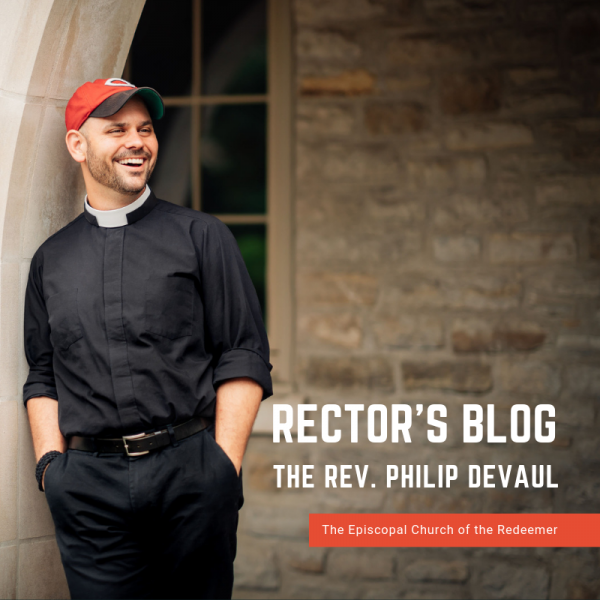Rector's Blog: For Love or Money?

Money was one of the first things that scared me when I was thinking about becoming a priest. There was the selfish fear, of course, that emerged as I asked one friend, “But do you people actually make a living?” But deeper than that, was a much bigger fear. To one dear mentor, I confessed, “I just don’t know how I’m going to talk to people about money, how I’m going to be able to ask them to give to the Church.”
I’ve always been afraid of being one of those Christians. You know, the ones that talk to you about faith, but you can see the dollar signs in their eyes. I’ve never wanted to present the idea that people’s value in God’s eyes or mine would be found in their monetary worth, or their financial gifts to the Church. This fear taps into some raw feelings – for me and for others. “Am I a commodity to God, to my priest, to my church? Is this a beloved community, or just one more place where my value is based on my performance and status?”
Last week I began a blog series about money, seeking specifically to elucidate why talking about giving to the church is so meaningful to me, even amidst discomfort and uncertainty. I laid out five major points that come up in this conversation to transform the experience into something with spiritual power. Today we’ll look more fully at just the first two points.
1) Your God and Your Church Love You. This is a dangerous but essential place to start. Beginning a conversation about your giving to the Church with a reminder of God’s (and your church’s) love for you has the capacity to be manipulative. It could come across as a guilt trip: “Remember what Jesus has done for you? The least you can do is give!” But we don’t start here because we want to set the table for a shaming, transactional relationship.
No, we start our conversation centered on God’s love for you in Christ Jesus because it’s true - because it’s the foundation for everything the Church does. First and foremost, we are proclaimers and practitioners of God’s love in Jesus’ name. And that love is unconditional. Which means, if we’re going to talk about money, we want to orient ourselves in the reality that – whatever we give or don’t give, God’s not letting us go. Jesus has us. We belong fully and utterly. And the Church exists as the Body of Christ in the world to practice that reality. God cherishes your presence. So, do we.
If we don’t acknowledge this at the outset we can forget and think that God’s love or the community’s acceptance of you might be based on your giving. It’s not. Your financial commitment is a response to God’s and the Church’s love, not a way to earn or increase it. So, first thing’s first, the immensity of God’s love for you does not increase or decrease based on your decisions around giving to the church. Likewise, your decisions do not impact how welcome you are and how much you belong to the Church of the Redeemer. You’re here and you’re loved. Nothing changes that. That’s the foundation for all our interactions.
2) You Love Your Church. Again, this is fraught. You might read it and think, “Here’s the guilt: If I love my church, I’d better show it, right?” Here’s the thing though: I don’t talk about giving to the Church with people who don’t love their church. If we’re going to engage in a real conversation about you committing your resources, it’s because we both love this community. Maybe this seems so obvious it’s not worth pointing out. I think it has to be said. If we’re talking about you giving, it’s because we both know that Redeemer matters to you. Making a financial commitment is not a requirement. It’s not an obligation. It is a practical, and meaningful loving action in support of a community that matters to you.
The first two points orient the act of giving in the reality of love. And this is of the utmost importance for us. I want you to be able to see any gift you give as an act of love. We’re scared that talking about money will commodify love, cheapen grace, and contaminate our experience of God. We’re scared of this because we’ve seen it happen. But money is a part of our lives of love: We use money to feed those we love, to shelter them, to care for and support people and endeavors that matter to us. Moments like this are practical expressions of love. Instead of money transforming love, when we orient ourselves in this reality, we allow love to transform money: to take it out of the realm of the secular and make it an instrument of blessing in the life of the beloved community to which we belong.